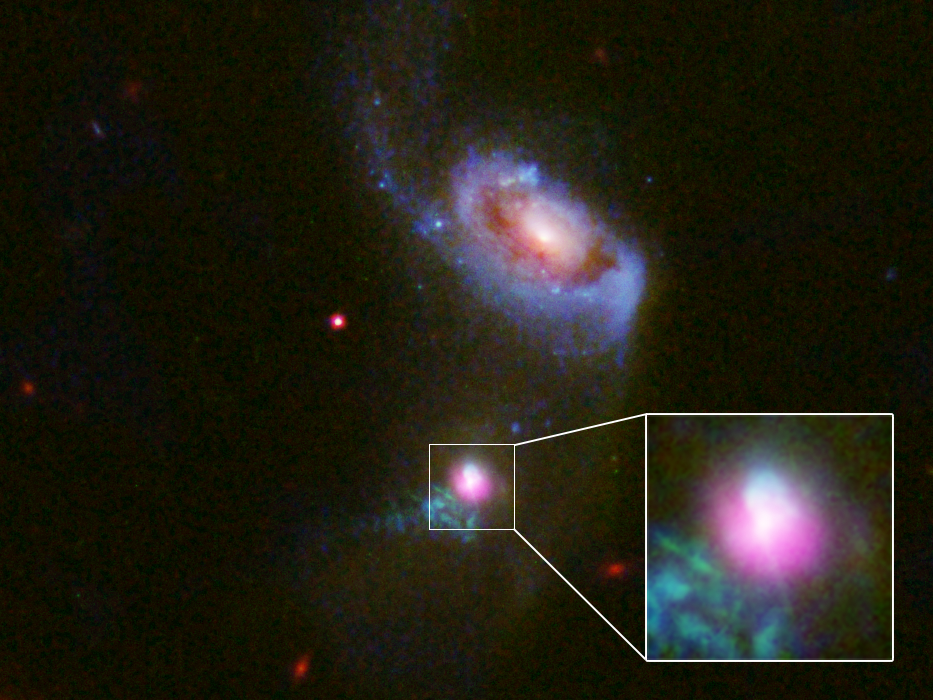
In space, no-one can hear you burp. Unfortunately for supermassive black holes, we can still see them belching. Scientists have watched a distant black hole burp out clouds of high energy particles—twice.
Combing images of the J1354 galaxy 800 million light-years away, they found two pools of the particles blasted from a black hole. About 100,000 years apart, the two belches are evidence of long-suspected black hole activity.
The research was presented yesterday at the American Astronomical Society's annual meeting in Washington, DC. It was also recently published in The Astrophysical Journal.
"We are seeing this object feast, burp, and nap, and then feast and burp once again, which theory had predicted," said Julie Comerford of the University of Colorado, who led the study, in a statement.
While black hole burps have been observed before, this was a lucky chance to confirm multiple belches. The discovery is evidence that black holes can switch their power outputs on and off more repeatedly.
"This galaxy really caught us off guard," said study author and University of Colorado Boulder doctoral student Rebecca Nevin.
Comerford added: "Fortunately, we happened to observe [J1354] at a time when we could clearly see evidence for both events."
So, why did this black hole get seconds after its dinner? The scientists point to a collision between J1354 and a neighboring galaxy. When they smashed together, chunks of matter flew towards J1354—straight towards the greedy black hole.
The discovery has implications for our own galaxy. The Milky Way's very own supermassive black hole is known to have feasted before. Just like J1354's, our greedy giant will likely binge, burp and sleep again.
Uncommon Knowledge
Newsweek is committed to challenging conventional wisdom and finding connections in the search for common ground.
Newsweek is committed to challenging conventional wisdom and finding connections in the search for common ground.
About the writer
Katherine Hignett is a reporter based in London. She currently covers current affairs, health and science. Prior to joining Newsweek ... Read more
To read how Newsweek uses AI as a newsroom tool, Click here.








